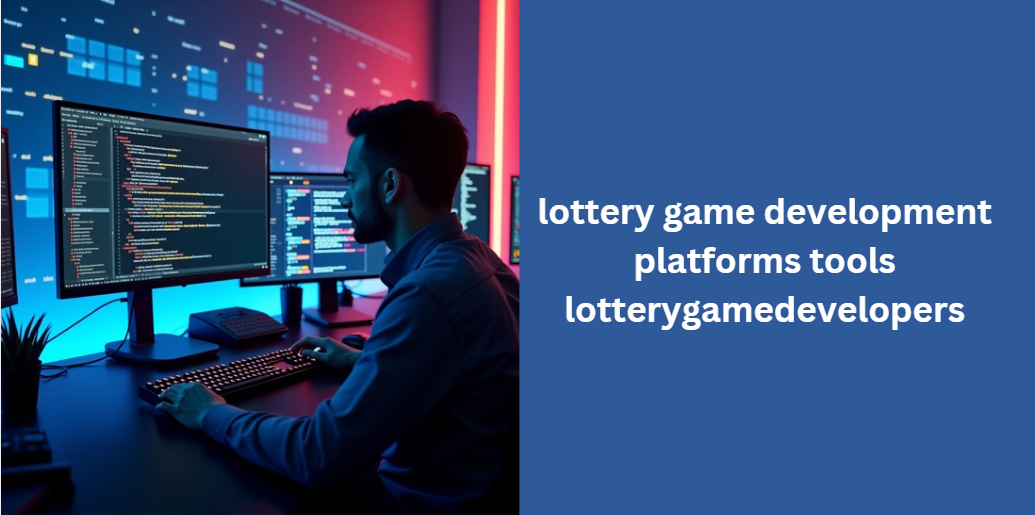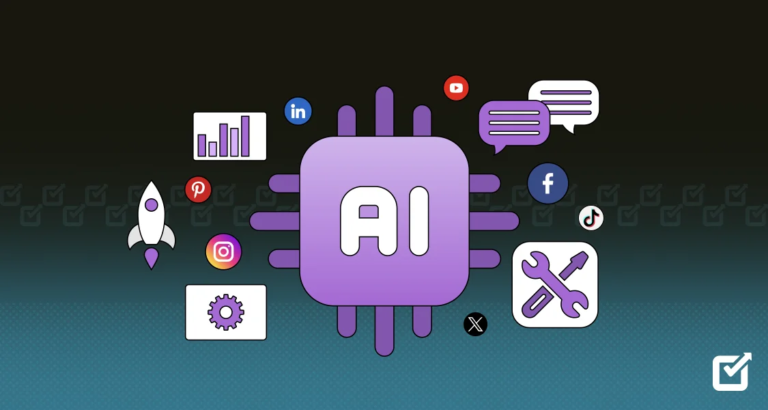Ultimate Comprehensive Guide on lottery game development platforms tools lotterygamedevelopers
This guide is designed to serve as an all-in-one resource for anyone interested in building or understanding the world of lottery game development. Whether you’re an aspiring developer, an operator, or an industry veteran, you will find valuable insights, step-by-step processes, and in-depth information that covers every facet of developing lottery games.
In this article, we discuss everything from market analysis and key technologies to provider reviews and future trends—all optimized to help you master lottery game development platforms tools lotterygamedevelopers.
Industry Landscape and Market Analysis
The online lottery industry has experienced tremendous growth in recent years. Global trends indicate that online lottery gaming is becoming an increasingly popular choice for both operators and players, thanks to technological advancements and widespread mobile access. Recent studies forecast steady growth, with market revenue expected to surge in the coming years.
In today’s competitive market, understanding the landscape is crucial. Major players in the industry include established software providers like GammaStack, Chetu, and Tecpinion, alongside innovative platforms such as lottery game development platforms tools lotterygamedevelopers. A table summarizing key market trends is shown below:
| Trend | Description | Impact |
|---|---|---|
| Mobile Accessibility | Increasing use of smartphones and tablets for gaming. | Broader audience and higher engagement. |
| Integration of AI & Blockchain | Enhanced security and personalized gaming experiences through emerging technologies. | Improved fairness and innovation. |
| Cloud-Based Platforms | Shift towards server-based and cloud-enabled solutions for better scalability and real-time updates. | Reduced maintenance costs. |
| Regulatory Compliance | Adherence to stringent legal frameworks and international gaming standards. | Builds trust and ensures market access. |
This market analysis helps set the stage for understanding the technical aspects and development platforms that power modern lottery games.
Understanding Lottery Game Development Platforms
Lottery game development platforms have evolved from simple standalone systems to complex, integrated solutions. These platforms centralize game logic, ensure fairness through certified random number generation (RNG), and support multiple payment gateways. The main components include:
- Back-Office Administration: Tools for managing game data, monitoring performance, and ensuring compliance with regulatory standards.
- Random Number Generators (RNG): Essential for ensuring fairness and transparency in lottery draws.
- Payment Gateway Integrations: Secure methods for processing transactions, including traditional and cryptocurrency payments.
Unlike traditional gaming systems, modern platforms are often server-based or cloud-based, allowing operators to benefit from reduced hardware costs, enhanced security, and real-time monitoring. By integrating these features, lottery game development platforms tools lotterygamedevelopers empower businesses to offer a seamless and engaging player experience.
Key Tools and Technologies
When diving into lottery game development, several core technologies and tools come into play. Two of the most popular game engines—Unity and GameMaker Studio—provide versatile environments for creating engaging lottery games. In addition to these engines, developers can utilize a variety of SDKs and APIs to extend functionality:
Game Engines
- Unity: Renowned for its robust 2D/3D capabilities and extensive asset store, Unity offers an environment where developers can create visually appealing and interactive lottery games. Its cross-platform support makes it an excellent choice for reaching a wide audience.
- GameMaker Studio: Ideal for developers who prefer a simpler, more focused toolset, GameMaker Studio supports rapid development and iteration, especially for 2D lottery games.
Integration and Extension Tools
Developers can enhance their lottery game development process by integrating additional tools such as:
- Payment APIs: For secure, multi-currency transactions.
- CRM and Analytics Platforms: To monitor user behavior and optimize game performance.
- Blockchain Integration Tools: To enable secure, transparent draws and NFT-based lottery tickets.
Emerging Technologies
Artificial Intelligence (AI) and Machine Learning are increasingly used to analyze player behavior, optimize game mechanics, and even generate content dynamically. Blockchain technology, on the other hand, adds an extra layer of security and trust by ensuring that lottery draws are transparent and tamper-proof.
In-Depth Look at Popular Lottery Game Development Providers
The market offers a range of providers specializing in lottery game development. Companies like GammaStack, Chetu, and Tecpinion have built reputations for delivering end-to-end solutions, from custom lottery games to comprehensive management systems.
For instance, GammaStack is known for its innovative approach to integrating global lottery formats, while Chetu offers extensive mobile app development services that are both secure and scalable.
Below is a sample table comparing some key providers:
| Provider | Core Offerings | Unique Strengths |
|---|---|---|
| GammaStack | Integrated platforms, global lottery formats | Pioneering innovation and scalable solutions |
| Chetu | Custom lottery software, mobile app development | Advanced RNG integration and security measures |
| Tecpinion | Lottery management, white-label solutions, turnkey systems | Comprehensive back-office and multi-channel support |
These providers are often highlighted on websites such as lottery game development platforms tools lotterygamedevelopers, which serve as a centralized resource for industry insights and technical trends.
Step-by-Step Lottery Game Development Process
Developing a lottery game involves several critical stages. Here’s an overview of the process:
Market Research and Requirement Analysis
Before development begins, it is essential to conduct thorough market research to understand player preferences, competitor offerings, and regulatory requirements. This stage sets the foundation for the entire project.
Planning and Prototyping
With requirements in hand, developers create prototypes to visualize the game’s design and functionality. During this phase, key elements such as user interface (UI), game mechanics, and 2D/3D art assets are defined and tested.
Design and Development
The design phase focuses on creating a user-friendly interface and engaging visuals. Detailed storyboards and mockups are created, followed by the development phase where the game is built using a chosen game engine. Integration of RNG systems, payment gateways, and APIs is also completed during this stage.
Testing and Quality Assurance
Rigorous testing is performed to ensure the game functions seamlessly across devices and complies with regulatory standards. This phase includes functional testing, performance testing, and security audits.
Deployment and Post-Launch Support
Once tested, the game is deployed to the target platforms. Post-launch, continuous monitoring and support are provided to address any issues, roll out updates, and enhance features based on user feedback.
Best Practices for Lottery Game Development
Ensuring fairness and engaging the player community are paramount in lottery game development. Here are some best practices to consider:
- Fairness and Transparency: Implement certified RNG systems to maintain game integrity.
- Security: Use advanced encryption and fraud detection to protect sensitive player data.
- Multi-Device Optimization: Ensure that your game is responsive and provides a consistent experience on all devices.
- User Engagement: Incorporate loyalty programs, dynamic notifications, and personalized offers to keep players engaged.
- Regulatory Compliance: Stay up-to-date with international gaming regulations to ensure your platform is compliant.
A checklist of best practices might look like this:
- Verify RNG certification.
- Secure payment integration.
- Optimize for mobile and desktop.
- Implement responsive design.
- Regularly update based on player feedback.
- Ensure compliance with regional laws.
Customization and White-Label Solutions
Operators often require the flexibility to customize their lottery platforms. White-label solutions allow companies to rebrand existing platforms, saving development time while still delivering unique user experiences. Custom solutions, on the other hand, offer complete control over every aspect of the game—from graphics to backend management.
A comparison table for customization options:
| Feature | White-Label Solution | Custom-Built Platform |
|---|---|---|
| Branding | Rebrand existing software | Fully customized branding and UI |
| Development Time | Faster to deploy | Longer development cycle for tailored features |
| Cost | Generally lower cost | Higher investment for unique solutions |
| Flexibility | Limited customization | Unlimited customization options |
Future Trends in Lottery Game Development
As technology evolves, so do the opportunities for innovation in lottery game development. Some of the emerging trends include:
- AI and Machine Learning: These tools will further personalize player experiences by analyzing behavior and optimizing game mechanics.
- Blockchain and NFTs: With increasing adoption, blockchain technology is set to revolutionize lottery draws, ensuring transparency and enabling digital collectibles.
- Augmented Reality (AR) and Virtual Reality (VR): These technologies could transform lottery games by offering immersive and interactive experiences.
- Cloud-Based Solutions: Enhanced scalability and lower maintenance costs will drive more operators to adopt cloud-based platforms.
A timeline table for predicted trends might be presented as follows:
| Time Frame | Emerging Technology | Expected Impact on Lottery Development |
|---|---|---|
| Next 2-3 Years | Enhanced AI Integration | More personalized gaming experiences |
| 3-5 Years | Blockchain & NFT Adoption | Increased transparency and new revenue models |
| 5-10 Years | AR/VR Gaming | Immersive lottery experiences with interactive gameplay |
| Ongoing | Cloud-Based Scalability | Lower costs and improved system performance |
FAQ’s
FAQ 1: What is the typical development timeline for a custom lottery game platform?
Development timelines can vary based on complexity and customization level. For a fully tailored platform, it may take anywhere from six to twelve months. Factors influencing this include initial research, prototype creation, iterative design, testing cycles, and integration of third-party systems. Coordination between cross-functional teams also plays a critical role in meeting deadlines without compromising quality.
FAQ 2: How are project teams typically structured for lottery game development?
Project teams in lottery game development usually consist of a mix of specialists. A typical team might include a project manager, UI/UX designers, front-end and back-end developers, quality assurance testers, and specialists for integration (such as payment and RNG experts). Often, teams also involve consultants who focus on compliance and security to ensure that the platform meets all regulatory standards.
FAQ 3: What cost factors should be considered when planning a lottery game development project?
Cost factors include initial design and development expenses, licensing fees for development tools and game engines, integration costs for third-party services (such as payment gateways and analytics), and ongoing maintenance. Additionally, budgeting for security audits, regulatory compliance, and potential customizations can affect the overall investment.
FAQ 4: How can operators measure the return on investment (ROI) for their lottery platforms?
Operators typically assess ROI through metrics such as player engagement rates, ticket sales growth, transaction volume, and customer retention. Analytics tools can provide real-time data, while periodic performance reports and customer feedback help evaluate whether the platform meets business goals. Comparing pre- and post-launch performance, along with monitoring changes in market share, is key to calculating long-term success.
FAQ 5: What are the ongoing maintenance challenges unique to lottery game platforms?
After launch, lottery platforms require regular updates to address security vulnerabilities, integrate new features, and adapt to evolving regulatory standards. Challenges include ensuring compatibility with multiple devices and platforms, managing system scalability during peak loads, and maintaining seamless integration with third-party services. Proactive monitoring and a dedicated support team are essential to handle these ongoing tasks effectively.
Comprehensive Resource List and Tools
For developers looking to deepen their understanding, a curated list of resources is essential. Online communities like lottery game development platforms tools lotterygamedevelopers provide continuous updates on trends, technical guides, and support networks.
Recommended Resources:
- Books and Guides: Look for titles on game development, blockchain integration, and AI applications in gaming.
- Online Tutorials: Platforms such as Udemy, Coursera, and YouTube have in-depth tutorials covering various game engines and programming languages.
- Industry Blogs: Stay updated with blogs from leading providers and industry experts.
- Tools for Analytics: Google Analytics, Mixpanel, and custom dashboards to monitor game performance and user engagement.
A quick reference table for resources:
| Resource Type | Examples | Purpose |
|---|---|---|
| Books | “Game Development Essentials” | Deep dive into game design and coding. |
| Online Courses | Udemy, Coursera | Step-by-step tutorials and hands-on projects. |
| Industry Blogs | LotteryGameDevelopers.com, GammaStack Blogs | Latest trends and case studies. |
| Analytics Tools | Google Analytics, Mixpanel | Performance tracking and user insights. |
Conclusion
In summary, this guide on lottery game development platforms tools lotterygamedevelopers has explored every aspect of building and managing modern lottery games. From understanding the industry landscape and key technologies to evaluating top providers and following best practices, we have provided a comprehensive roadmap for success.
Whether you are planning to develop a custom solution or deploy a white-label platform, the information presented here will equip you with the knowledge and tools needed to create a secure, engaging, and scalable lottery game. By leveraging the insights and strategies outlined, you can confidently step into the world of lottery game development and aim for the top spot on search engines while delivering an exceptional gaming experience.
Recomended posts
Comprehensive Guide on khine zin htwe md
dsp de q tino con anilina seco o lavo: The Ultimate Comprehensive Guide
Comprehensive Guide to apply waxillgro279 product
Ultimate Guide to what is qilszoxpuz7.4.0.8 bankroll
The Ultimate Guide to Fannie May Premium Milk Chocolate Pixies Holiday Gift Box (ASIN: b09lkrypgw)






